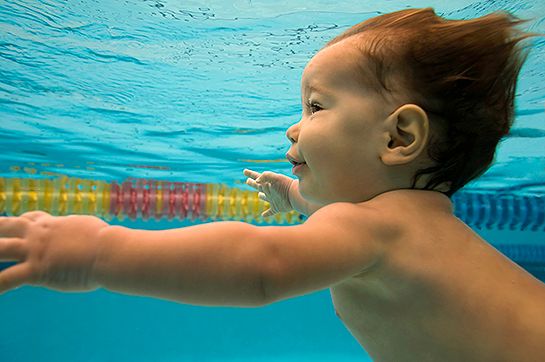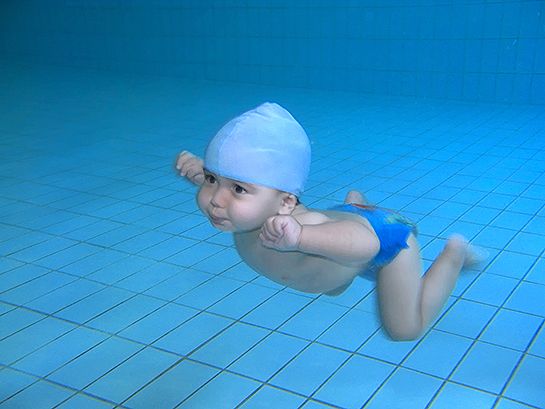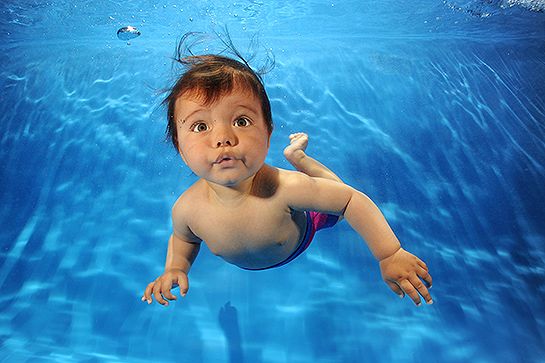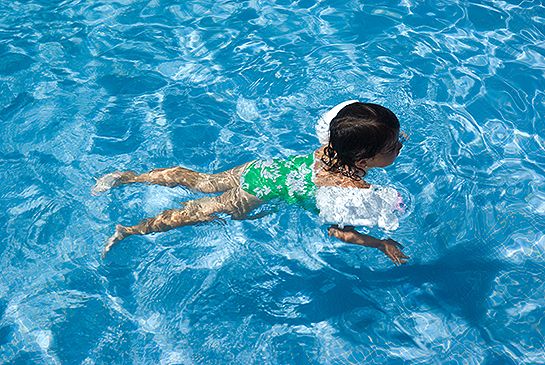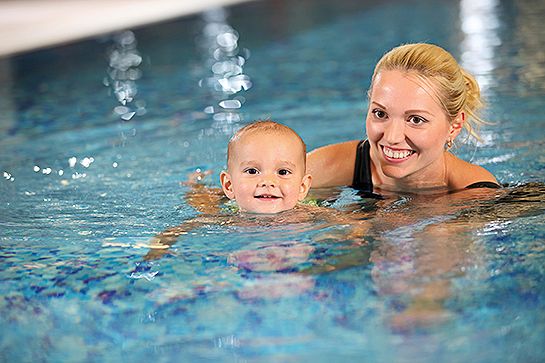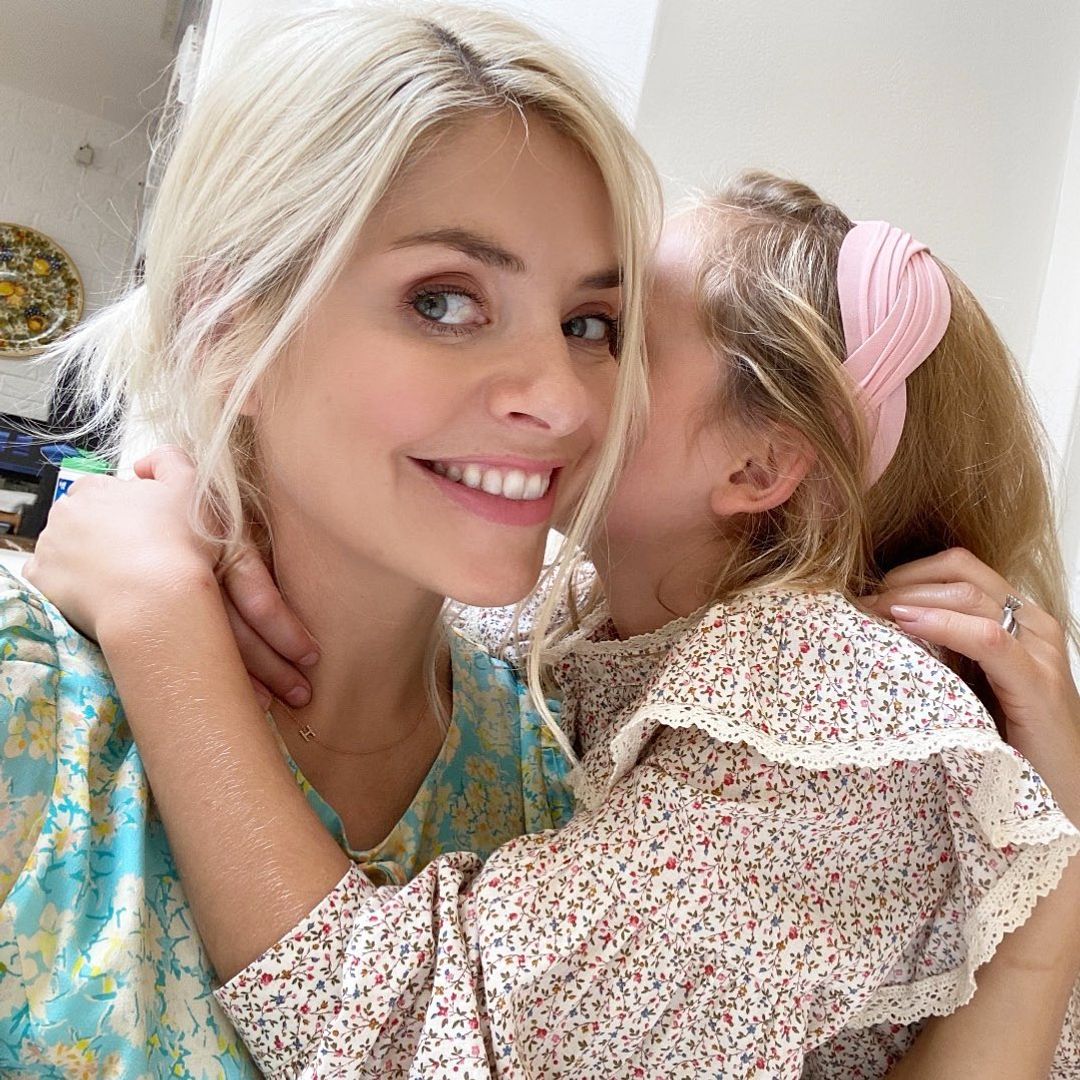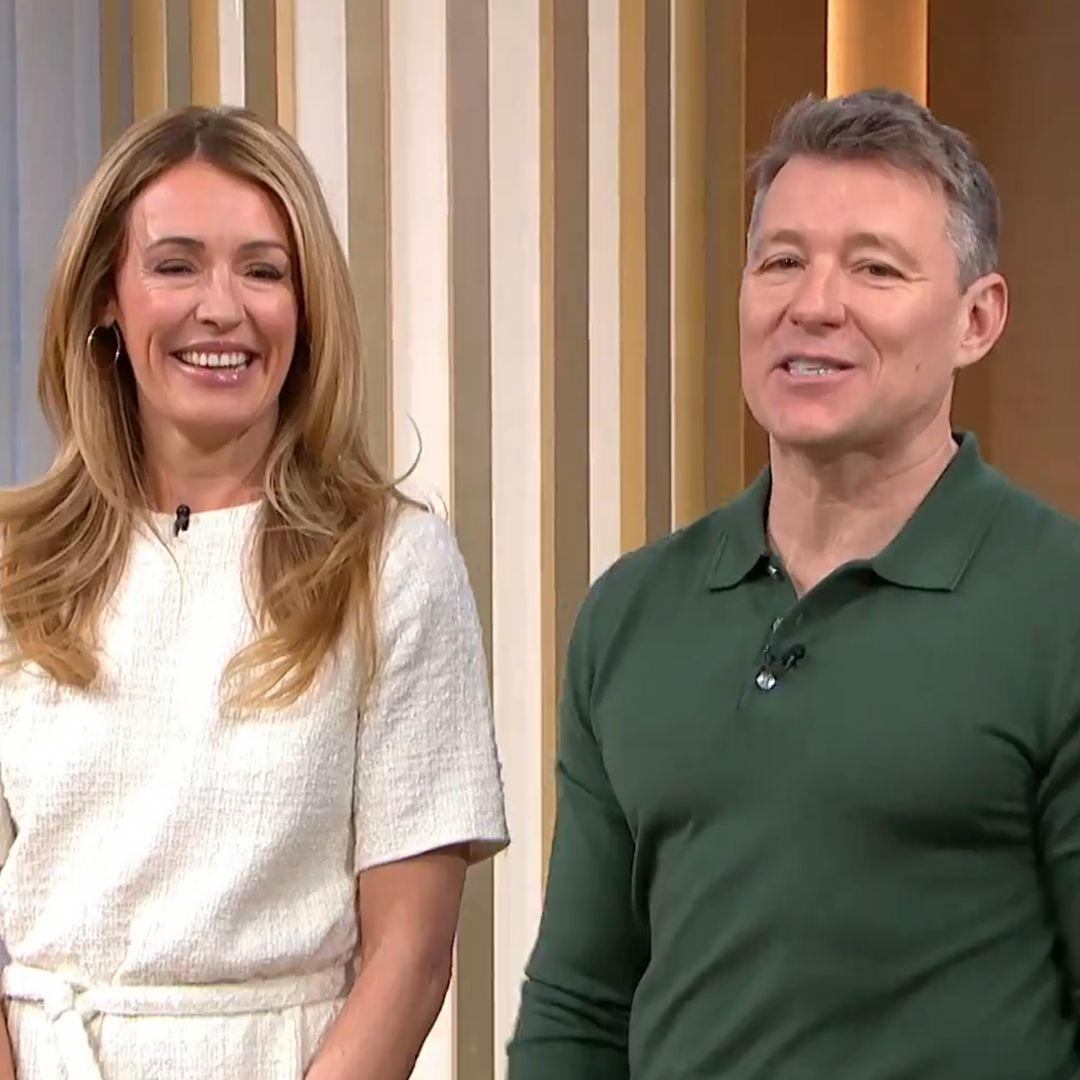The sad truth is that children have accidents in and around water, sometimes with devastating consequences. As a parent, one of the ways you can take steps to avoid a tragedy is to get your child water-safe from an early age.
Across the country, classes are being run to teach babies and toddlers how to swim.
As well as being a valuable life-skill, the lessons are a brilliant way of bonding with your child as their confidence grows in the water. HELLO! Online chats to Paul Thompson, co-founder of popular swimming school Water Babies, who explains the importance of getting little ones in the pool. When (and why) is the best time to get children swimming?With Water Babies, your baby can begin swimming as soon as you're ready to bring them along – our youngest was just two days old! It's a good idea to take your baby swimming from an early age, and attending organised, structured swimming classes will help set out specific aims and objectives for your baby. Going to baby swimming classes is also a really fun, interactive and sociable experience where you can meet other parents in the local area and help your baby get more comfortable being around other babies and adults.
Our aim at Water Babies is to teach you to teach your baby to swim and we have detailed weekly lesson plans to make this an easier process. Baby swimming increases confidence in the water and teaches vital life saving skills. Swimming is one of the most complete and beneficial activities, as well as being one of the few things you can do with a baby from birth. The first year of life is a time when the brain grows the most rapidly; with every action stimulating its growth, strengthening nerve fibres and making it function more efficiently. What if parents haven't got their babies swimming and they're worried their children are growing up not knowing how to swim? And do you have any advice for those with children worried about water?Babies aren’t born with a fear of water; however this anxiety can start to creep in once they’re around six months. Simple things can cause this such as feeling too enclosed in a bath, the water temperature being too cold, loud noises at the swimming pool or even your own anxiety around water or swimming. So while this doesn’t mean that you have to take them swimming before they reach six months, the sooner you get your little one used to being around or in water, either in a bath or swimming pool, the better. It’s best to gently introduce them to warm water in a calm and nurturing environment from as early as possible. If they don’t enjoy bath time, perhaps they don’t like the change in temperature, so first of all make sure that both the room and water are nice and warm– the water should be comfortably warm, but not hot (buy a bath thermometer if you’re not sure), and keep it quite shallow (20 – 30cm.) Try alternating your bath time routine as they may be overtired. Or share a bath with them, gently lying back with them on your chest and trickling water over their tummy and limbs (but not their face at this stage). If you show your baby that you’re really enjoying the experience, they’ll pick up on this and start enjoying it more too. And don’t forget to wrap them up in a lovely warm towel once bath time is over to keep them nice and toasty.
Throughout the session, try alternating between holding them very close, with lots of reassuring skin-to-skin contact, then at arm’s length so they can move freely and feel a bit more independent. Babies tire easily in the water, so restrict your first visit to around 20-30 minutes and make sure you have a hat and towel for afterwards. It's normal for them to be hungry and tired after swimming, and not unusual for them to sleep for a couple of hours as well – definitely an added bonus to a successful trip!
When you do make it to the pool, make sure your first visit is a positive, gentle introduction to this multi-sensory world. Spend time on the side getting them used to the noises, colours, splashing and general hubbub of the pool environment – these will all be much louder than at home! Smile and talk to your baby – show them that it’s all meant to be fun! It’s really important that you are calm and positive as they’ll take their cues from you. Get your shoulders under the water and hold your baby so the water covers their chests. You do need to make sure that the water is warm enough – at least 30° for babies over 12 weeks or 12 lbs, and above 32° if they’re younger or smaller – and maybe buy a wetsuit if you’re at all concerned about temperature as they are really effective at keeping your baby’s chest nice and warm.
How important is it for parents to take their children swimming as an afternoon out etc? What about parents who are themselves not strong swimmers or can't swim?Swimming with your baby is one of the most memorable, thrilling and bonding experiences the two of you can share. Time in the pool can be special for you both as you can give your baby undivided attention whilst having fun together. In Water Babies sessions, you'll always be with your child in the water, creating an excellent opportunity for you to interact and bond. Quite a few of our Water Babies come to us specifically because mum or dad can’t swim or are frightened of water. They may want to ensure that their child never develops the same fear, or to give them opportunities they never had. We respect and admire this attitude, and work closely with these parents to help promote confidence in the water for them and their baby. All our pools are shallow enough for you to be able to stand in every easily, and many of our mums and dads gain so much confidence bringing their little ones that they then learn to swim themselves! Are there any swimming aids that can help? There are lots of swim aids that can help a child gain confidence and have a lot of fun in the water, as well as help them improve their swimming...Toys – such as fish, balls or ducks are great fun to chase and catch – or just for encouraging your little one to splash to gain water confidence. Floats – these are used for a variety of reasons, from aiding buoyancy and gaining water confidence to helping streamline a toddler’s body position.Woggles – a great buoyancy aid for learner swimmers as they are less restrictive for arm and leg movement. Good for floating on and great for doing silly races!Sinkers – can be used by everyone - from learners to gain water confidence about putting their faces under the water, right up to confident swimmers to develop their swimming skills under the water in a fun way.Float Jackets – these are great for learner swimmers as removable floats can be adjusted to suit each child as they develop.Fins – these are a fun buoyancy aid used for all levels of swimmers from age 2 upwards to help with their body position and strokes.All of the above, and all other swim aids, should be used in a fun but supervised way. Whilst there are a lot of swimming aids available, parents should be made aware of the dangers of being lulled into a false sense of security when using buoyancy and flotation aids outside of lessons. If you do use them, you need to ensure that the aid fits the size and age of the child and the child is always supervised. With flotation jackets, read the instructions really carefully and adjust any foam inserts correctly. The key thing with swim aids is to have fun and use them to gain water confidence.
Why is it so important that children can swim?You’ll be teaching your baby a key skill, right from birth. And it’s one from which they’ll benefit for the rest of their lives. Babies can learn vital life-saving actions from remarkably early on. In Water Babies classes they’ll start learning the basics almost from week one. Then, each week they’ll gradually add new elements to each skill.While the emphasis is on parents and babies having fun during Water Babies sessions, they also have a very serious purpose. Tragically, drowning is still the third highest cause of accidental death in the UK. In most cases it’s the shock of sudden submersion that causes children to panic. We believe that by introducing babies to water as early as possible, they’ll be less likely to experience fear if they do fall in.And it really works. One of our clients, little Elizabeth Jelley, from the Wirral, fell into her unheated family pool in the week of her second birthday. Because she’d started swimming at just seven weeks, she was able to come to the surface, swim to the side and hold on, until her mother thankfully found her around eight minutes later.Learning to respond to voice commands should be a big part of any structured baby swimming programme. While the natural reflexes babies are born with are part of what enables them to safely be submerged, what’s even better is to teach babies to control their own breathing – through responding to commands. And it’s incredible how early they learn to do this. And of course, learning to recognize words from early on is again great for both social and mental development.Just as it’s never too early to start swimming, exercise is also really important in the first few years of life. Getting your baby used to regular exercise is a fantastic thing to teach them. It’s also exercise that’s sociable, energetic and really good fun – good for your baby, but great for you as well.

